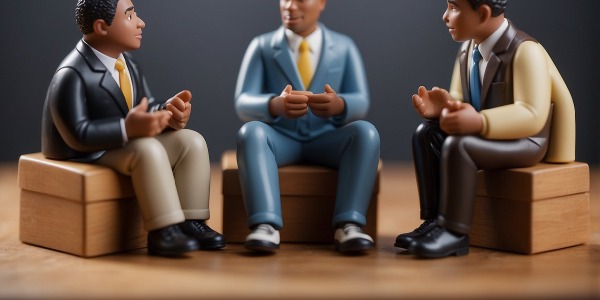12 Interesting Facts About Human Psychology: A Fascinating Dive into the Mind
Human psychology is a fascinating topic that helps us understand why people think, feel, and act the way they do. By exploring this subject, you can gain insights into the human mind and behavior.

You can use these facts to better understand yourself and those around you. From how we form memories to what influences our decisions, these facts reveal the complexities of the human psyche.
1. People can tell when you’re lying

Did you know that people are surprisingly good at spotting lies? Your body language often gives you away.
When you lie, you might avoid eye contact. You could fidget or touch your face more.
Your voice can change too. It might get higher or waver a bit.
People can also notice if your story changes. If details keep shifting, it can raise suspicions.
Even the smallest facial expressions can be a giveaway. A quick flash of uncertainty might be all it takes.
Everyone has their own tells. By being aware of them, you can better understand how others perceive you.
2. We have a negativity bias.

You might have noticed that negative experiences seem to stick in your memory more than positive ones. This is called negativity bias. It’s a psychological trait where bad events impact you more strongly than good ones.
This bias likely helped our ancestors survive. By focusing on dangers and threats, they became better at avoiding harm. In today’s world, this bias can sometimes make you focus too much on problems and threats.
Negativity bias means you’re more likely to remember insults than compliments. It also makes you more likely to dwell on criticism than praise. This can affect your mood and outlook on life.
Even though this bias can be helpful in some situations, it can also cause stress and anxiety. Being aware of it can help you balance your thoughts and focus more on positive experiences, too.
3. Cognitive dissonance shapes our actions.

Cognitive dissonance happens when you have two conflicting thoughts at the same time. For example, you believe smoking is bad, but you still smoke. This makes you feel uncomfortable.
To fix this, you might change your actions or beliefs. You could quit smoking or convince yourself that smoking isn’t so harmful. This helps reduce the uncomfortable feeling.
This is why people sometimes stick to their decisions even when they seem wrong. They don’t like feeling conflicted and want to make sense of their choices. So, they might ignore new information that contradicts their actions.
Your brain likes harmony. When your thoughts and actions don’t match, it tries to fix it. This can lead to changing your behavior, beliefs, or even how you remember things.
Being aware of cognitive dissonance can help you understand why you do what you do. It also helps you see why other people might act in surprising ways.
4. Mirror Neurons Help Us Empathize

Mirror neurons play a big role in how you understand others’ emotions. These special brain cells activate when you see someone doing an action, like smiling or crying. It’s almost like your brain is mirroring the other person’s feelings and actions.
When you see someone in pain, your mirror neurons might make you feel a bit of that pain too. This can help you empathize and connect with them. It’s one reason you might feel sad when your friend is upset.
These neurons can also help you learn by watching others. If someone is doing something new, your mirror neurons can help you get the idea of the action before you even try it yourself. This makes it easier to pick up new skills.
Empathy isn’t just about feelings. It’s also about actions. Your mirror neurons help you understand what someone might be going through and might even prompt you to offer help. This brain feature shows how closely connected we all can be.
5. Your brain can rewire itself.

Your brain is always changing. This ability is called neuroplasticity. It means that your brain can form new connections between neurons.
When you learn something new, your brain builds these connections. Practicing a skill strengthens them. This helps you get better at what you’re doing.
Even if you lose some brain function, other parts can take over. This is how people relearn skills after brain injuries.
You can help your brain rewire itself. Try new activities, challenge yourself, and keep learning. Healthy habits, like regular sleep and good nutrition, also support this process.
Your brain is amazing and can adapt throughout your life. This flexibility is key to learning and recovery.
6. We crave social approval.

You might notice that you feel good when someone compliments you. This is because humans naturally seek social approval. It feels nice to be liked and accepted by others.
When you receive positive feedback, your brain releases chemicals like dopamine. These chemicals make you feel happy and valued. This is why social media “likes” and comments can be so addictive.
Feeling accepted helps you build self-esteem. It makes you feel more confident and secure. You may find that you often look for validation from friends, family, or even strangers.
Social approval is especially important during your teenage years. During this time, you are figuring out who you are and where you fit in. Positive social interactions help you develop your identity.
Sometimes, the need for approval can make you act in ways to please others. This might mean changing your behavior or opinions to match those around you. It’s important to find a balance and stay true to yourself.
You are not alone in seeking social approval. This is a common part of being human and helps you connect with others. These connections can lead to lasting friendships and strong communities.
7. First Impressions Last.

When you meet someone for the first time, you often form an opinion about them within seconds. This quick judgment can stick with you for a long time.
Your brain is wired to make snap decisions. It does this to keep you safe and alert. These first impressions can affect how you interact with others in the future.
Dressing well, smiling, and making eye contact can help create a positive first impression. These small actions can make a big difference in how others see you.
First impressions are not always accurate. Sometimes, they can be based on biases or stereotypes. It’s important to keep an open mind and give people a chance.
8. Scarcity drives desire.

When something is scarce, you often want it more. This is a common human trait.
Imagine a limited-edition sneaker release. The fact that only a few are available makes them more desirable.
This also happens in relationships. If someone is hard to get, you’re likely to be more interested in them.
Advertisers use this concept too. They might say, “Only a few left!” This makes you more eager to buy.
Think about items on sale for a short time. The limited window makes you act quickly.
Scarcity can even affect how you see food. Rare ingredients or dishes can seem tastier, just because they’re harder to find.
Next time you really want something, ask yourself if it’s because it’s scarce. It’s a powerful influence on your choices.
9. The placebo effect is powerful.

The placebo effect shows how belief can influence health. When you think you’re getting actual treatment, even if it’s just a sugar pill, you can feel better. It’s not the medicine working, but your mind.
Research shows that placebos can relieve pain, improve mood, and even change physical symptoms. This happens because your brain releases chemicals like endorphins when you expect relief or healing.
Even if you know you’re taking a placebo, it can still work! This is called the “open-label placebo.” Your mind can still create positive effects because it expects to feel better.
Doctors sometimes use placebos in clinical trials to test new drugs. Comparing the real drug to a placebo helps scientists see how effective the new treatment is. It’s a crucial part of medical research.
Placebos show how powerful your mind can be. They remind us that sometimes, believing in the possibility of feeling better can actually help you feel better.
10. Conformity influences behavior.

Have you ever been in a situation where you did something just because everyone else was doing it? That’s conformity at work. When you change your behavior to match the people around you, you’re conforming.
This happens because humans tend to want to fit in with their peers. You might follow the crowd to avoid standing out or being judged.
Conformity can influence your choices, like what you wear or how you spend your free time. Even your opinions might shift to align with the group.
Group pressure can be strong, making it hard to stick to your personal beliefs. Sometimes, you might conform without even realizing it.
Fitting in can feel safe and reassuring. Yet, it’s important to be aware of when you’re conforming and why.
Think about times when you’ve followed along with the group. Were you acting on your own wishes or just going with the flow? This awareness can help you make more independent choices.
11. Memory is reconstructive.

Your memory is not like a video recorder. It doesn’t store every moment exactly as it happened. Instead, your brain pieces together bits of information to create a memory.
When you recall an event, your brain fills in gaps with assumptions or related memories. These gaps can lead to changes or errors in the story you remember.
Emotions and context also shape your memories. If you were scared during an event, you’ll likely remember it as more intense. If you felt happy, the memory might seem brighter.
The people around you can influence your memories too. When you talk about past events, others’ perspectives may shape or change your own recollection.
Even small suggestions can alter your memories. For example, if someone mentions a detail that wasn’t there, you might start to believe it was part of the event.
This reconstructive nature of memory shows how dynamic and flexible our minds are. Your memories are living parts of your experience, changing and evolving over time.
12. Nonverbal cues matter.

Did you know that your body can say a lot without you even speaking? Nonverbal cues like gestures, facial expressions, and posture are super important.
When you smile at someone, you’re showing friendliness. Folding your arms might make you seem closed off or defensive. Eye contact can show trust and interest.
Think about a time someone rolled their eyes at you. It probably made you feel frustrated, right? Nonverbal cues can affect how others feel and react.
Even the way you stand or sit can send messages. Standing tall with good posture can show confidence. Slouching might suggest that you are bored or tired.
Pay attention to these cues in your interactions. They can help you communicate more effectively with others.
The Basics of Human Psychology
Human psychology explores how people think, feel, and behave. It examines what influences our actions and how our brain functions.
Understanding Human Behavior
Human behavior is shaped by many factors, including environment, culture, and experiences. How you were raised, what you were taught, and your personal encounters play a huge role in how you act.
- Environment: Your surroundings influence your reactions and decisions.
- Culture: Traditions and values instilled by your community guide your behavior.
- Experiences: Past events shape your future actions and responses.
These factors come together to form your behavior patterns and emotional responses, making everyone’s behavior unique.
The Role of the Brain
Your brain is the control center for all your thoughts and actions. Different parts of the brain handle various functions like emotion, memory, and decision-making.
- Amygdala: Involved in emotion and fear responses.
- Hippocampus: Essential for forming new memories.
- Prefrontal Cortex: Responsible for decision-making and problem-solving.
Understanding how these parts work helps explain why you think and act in certain ways.
Interesting Aspects of Personality
Human personality is a fascinating topic with many aspects. Here, we explore individual traits and the widely accepted framework known as the Big Five.
Personality Traits
Personality traits are specific characteristics that define who you are. Traits like kindness, curiosity, and honesty shape your actions and reactions.
- Kindness signifies empathy and a desire to help others.
- Curiosity reflects an eagerness to learn and explore.
- Honesty involves being truthful and transparent.
These traits are stable over time. Your environment and experiences can influence them, but core traits usually remain. They help predict behaviors across different situations.
Personality traits can be measured using questionnaires. These assessments help in understanding yourself better and in predicting how you might behave or react in various circumstances.
The Big Five Personality Traits
The Big Five Personality Traits is a popular model in psychology. It’s often referred to as OCEAN, standing for Openness, Conscientiousness, Extraversion, Agreeableness, and Neuroticism.
- Openness: Creative and open to new experiences.
- Conscientiousness: Hardworking and organized.
- Extraversion: Energetic and outgoing.
- Agreeableness: Friendly and compassionate.
- Neuroticism: Sensitive and prone to stress.
Here’s a quick breakdown:
| Trait | Description |
|---|---|
| Openness | Curiosity, imagination, creative ideas. |
| Conscientiousness | Reliability, attention to detail, disciplined. |
| Extraversion | Sociable, talkative, enjoys interaction. |
| Agreeableness | Trustworthy, cooperative, good-natured. |
| Neuroticism | Anxious, emotional, easily upset. |
Knowing your Big Five scores can help you understand your behavior patterns. This insight is useful for personal growth and improving relationships. It also helps in choosing careers and activities that suit your personality.
Frequently Asked Questions
Learn about different psychological facts that tell us more about human behavior, personality, emotions, and the mind.
What are some compelling psychological facts about human behavior?
People can often detect lies through non-verbal cues such as body language. Humans also tend to focus more on negative experiences and information. This tendency is called negativity bias.
How do characteristics of human personality play a role in psychology?
Characteristics like openness, conscientiousness, extraversion, agreeableness, and neuroticism impact how we interact with the world. These traits shape our thoughts, emotions, and behaviors.
What are some intriguing aspects of the human mind revealed by psychology?
Mirror neurons help us understand and share the feelings of others, leading to empathy. The mind also experiences cognitive dissonance, which is the discomfort felt when holding contradictory beliefs.
Can you list fascinating psychological insights related to human emotions and love?
Love triggers the release of chemicals in the brain, such as oxytocin and dopamine, creating bonds between people. Emotions can sometimes override logical thinking, making us act on feelings rather than reason.
What are some dark psychological facts that give insight into human nature?
Humans can sometimes be cruel to others, influenced by situational factors and authority. This was shown in experiments like the Milgram obedience study, where people followed orders to harm others.
How do our attitudes shape our behavior according to psychological studies?
Our attitudes can guide our behavior, sometimes without us realizing it. Positive attitudes often lead to positive actions, while negative attitudes can result in negative actions.



